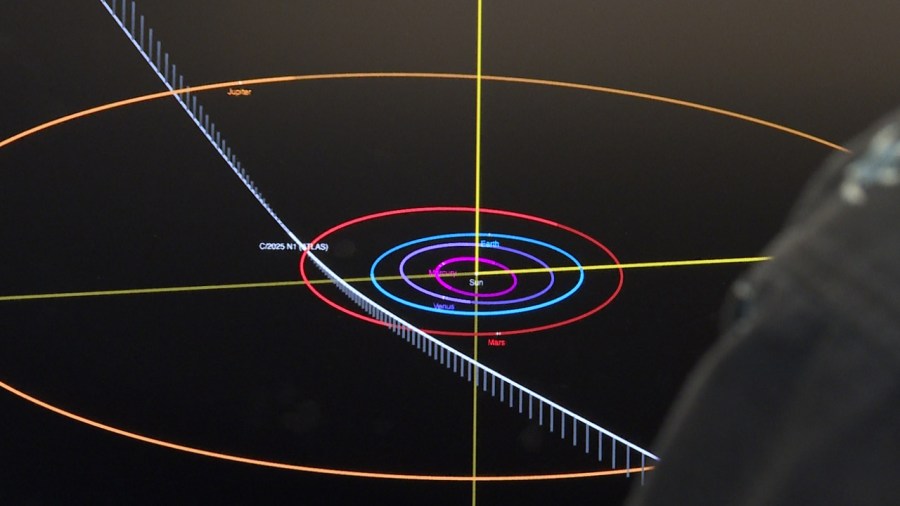Manoa, Hawaii (KHON2) — A new discovery from a University of Hawaii-operated telescope is turning heads in the astronomy world.
Download the free KHON2 app for iOS or Android to stay informed on the latest news
A massive object from outside the solar system is passing through, but the world is not in danger.
It is a rare visitor, astronomers said it is only the third known interstellar object ever discovered. It was detected by a University of Hawaii-operated telescope in Chile, part of the Asteroid Terrestrial-impact Last Alert System (ATLAS).
Astronomers track object that may have originated outside the solar system
“These are really rare so far. It’s only the third one ever. There’s, you know, a million and a half known asteroids and there’s about 30, 35,000 near Earth objects,” said ATLAS astronomer Larry Denneau.
The object — now officially named 3I/ATLAS — is believed to be up to 12 miles wide, much larger than either Oumuamua or Borisov, the two interstellar objects found before it. It is currently hurtling toward the sun at more than 150,000 miles per hour.
Pentagon report explores possibility of alien ship visits
“That’s how we know it’s interstellar, right? So, there’s no way that an object that’s orbiting the sun can produce that kind of velocity through the gravitational attraction of the sun,” Denneau said.
3I/ATLAS will pass between Earth and Mars sometime in October, but there is no danger of a collision.
“And so occasionally they find these very rare interstellar things. But in terms of impact risk, we’re more worried about things, that come from within our own solar system,” said UH Manoa Institute for Astronomy associate astronomer Roy Gal.
Scientists believe the object is likely a comet and could become more active as it nears the sun, it will not be visible to the naked eye but telescopes around the world are lining up to observe it.
“They’re exotic in that they’re a rare find since they come from outside the solar system. We don’t know what they’re going to be made of. And so a lot of the telescope proposals that are coming up want to try to study this really carefully to find out, does it have the same stuff that we find in our solar system? We’ll learn something from that,” Denneau said.
The discovery comes as the field of astronomy faces growing uncertainty. Federal funding cuts have already impacted major projects, including Hawaii’s proposed Thirty Meter Telescope.
Check out more news from around Hawaii
“And we’re lucky little bit in that planetary defense is not being cut. So projects like Atlas will continue, but all kinds of other basic research in astronomy, but also in all other sciences is really going to be hit hard “
Copyright 2025 Nexstar Media, Inc. All rights reserved. This material may not be published, broadcast, rewritten, or redistributed.
For the latest news, weather, sports, and streaming video, head to KHON2.
